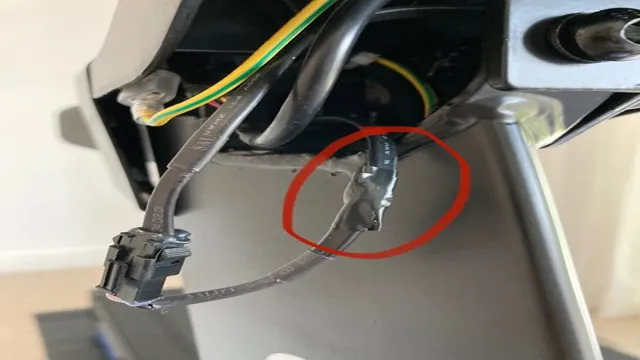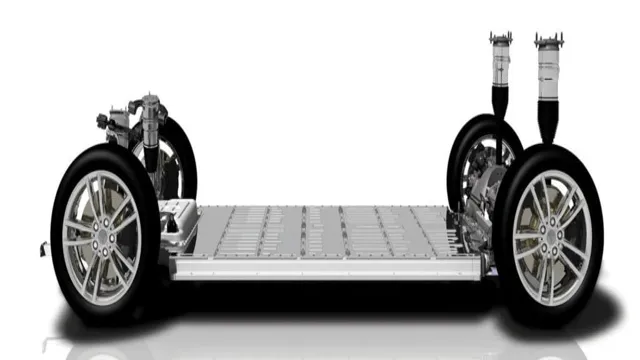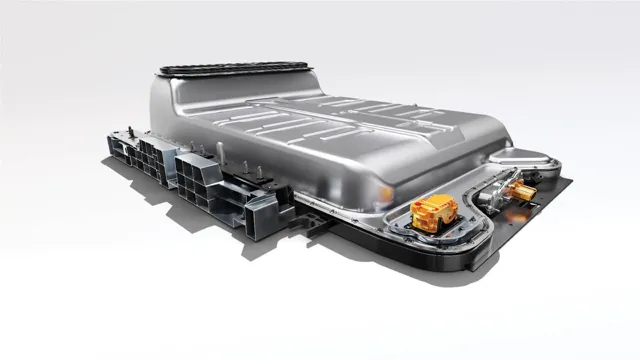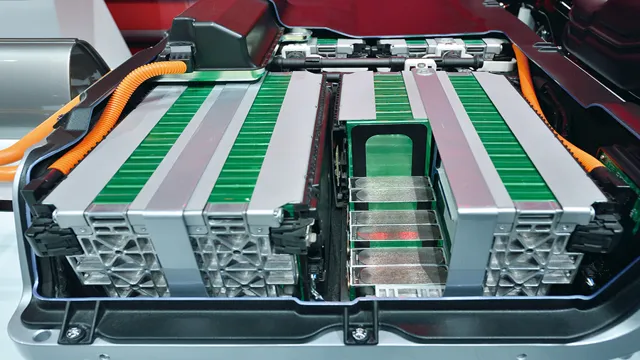Revving Up the Truth: Examining the Real-Life Electric Car Battery Charge Life
Electric cars are becoming more popular, but many people still have reservations about them. One of the most common concerns is the battery life of an electric car. Yet, what is the real truth about electric car batteries? Are they as unreliable as some people believe, or are they a cost-effective and eco-friendly option for drivers? In this blog, we will dive deep into the world of electric car batteries, debunking common myths and answering important questions.
We will explore the differences between lithium-ion batteries and traditional car batteries, look at factors that affect battery life, and discuss the advancements in battery technology. You may be wondering, “what about the range of an electric car?” or “how often do I need to replace the battery?” We will cover these questions and more, helping you make an informed decision about whether an electric car is right for you. Think of an electric car battery like a smartphone battery.
Both batteries degrade over time, but with proper care and up-to-date technology, they can last for years. Just like a smartphone, an electric car battery can also be charged at home or at charging stations, and the cost of charging is significantly lower than the cost of gas for traditional vehicles. So, are electric car batteries worth it? The answer is a resounding “yes”.
With advancements in technology and environmental concerns on the rise, electric cars and their batteries are the way of the future. So sit back, relax, and get ready to learn the truth about electric car batteries.
What Determines Battery Life?
When it comes to electric car battery charge life, there are several factors that determine how long your battery will last. One important factor is the type of battery used. Lithium-ion batteries are becoming the standard for electric cars, as they offer high energy density and a long cycle life.
Additionally, the size of the battery and the amount of charge it can hold also play a role in determining battery life. Other factors include driving habits, environmental conditions, and how often the battery is charged. For instance, high-speed driving, frequent acceleration, and harsh weather conditions can all drain the battery more quickly.
On the other hand, proper maintenance, regular charging, and driving at moderate speeds can all help to extend the life of your electric car battery. Overall, there is no one-size-fits-all answer when it comes to electric car battery life, but by following some best practices and understanding the factors at play, you can help to ensure a longer and more reliable battery life for your electric vehicle.
Capacity and Cycles
Capacity and cycles are two primary factors that determine the lifespan of a battery. Capacity refers to the amount of charge a battery can hold and cycles refer to the number of times a battery can be charged and discharged. As batteries get older and go through more charging cycles, their capacity decreases.
This is why you may notice your phone’s battery doesn’t last as long as it did when you first got it. Most lithium-ion batteries have a lifespan of 300 to 500 cycles, which translates to roughly one to two years of use. However, factors like temperature and usage patterns can also affect a battery’s lifespan.
Extreme heat or cold can cause a battery’s capacity to decline at a faster rate while heavy usage, such as playing games or streaming videos, can cause a battery to discharge quickly. It’s important to note that not all batteries are created equal, and some may have a longer lifespan due to advancements in battery technology.
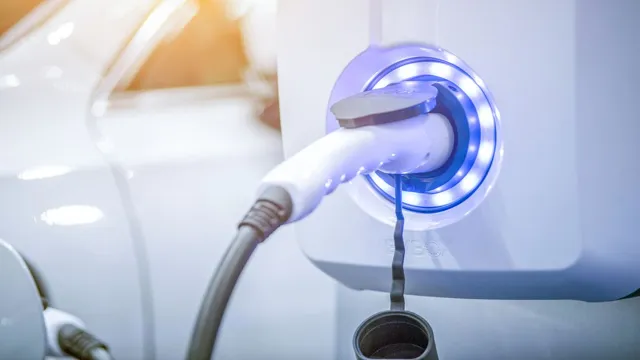
Temperature and Charging Behavior
Battery life is a crucial factor to consider when it comes to your smartphone’s longevity, and a few factors can impact it. Temperature and charging behavior, for instance, can play a significant role in how long your phone lasts before requiring a replacement. Smartphones work efficiently within specific temperature ranges, and outside of that, they tend to perform poorly or face lasting damage to their battery.
Charging behavior, too, plays a crucial role in battery life. Overcharging a phone not only harms battery life, but it can also lead to battery bloating or even an explosion. It’s best to keep a check on your phone’s charging behavior by unplugging it once it reaches 100%, avoiding charging it overnight, and using the right adapter that comes with your phone.
It’s these simple yet effective steps that can help prolong your phone’s battery life, so you don’t have to think about replacing it anytime soon.
Average Charge Life Expectancy
When it comes to electric cars, one of the main factors that people consider is the battery charge life. How long will the car be able to run before it needs to be charged again? The average charge life expectancy of an electric car battery varies depending on the make and model of the vehicle, as well as the driving habits of the owner. Generally, most electric car batteries can last anywhere from 100,000 to 200,000 miles before needing to be replaced.
However, this can vary greatly depending on how often you drive your car, how fast you drive, and how often you use the air conditioning or heating. It’s important to keep in mind that the battery charge life will gradually decrease over time, so it’s important to take care of your battery and follow the manufacturer’s recommended maintenance schedule. Overall, electric car battery charge life has come a long way in recent years, and with advancements in technology, we can expect to see even more improvements in the future.
Statistics on Popular Models
When it comes to buying a new phone, one factor that many people consider is the average charge life expectancy. After all, who wants to constantly be tethered to a power outlet or carry around a bulky external battery pack? According to statistics, Apple’s iPhone 11 Pro Max boasts the longest average charge life expectancy, with a whopping 11 hours of browsing time. Samsung’s Galaxy S20+ and S20 Ultra aren’t far behind, with average battery lives of 10 hours and 9 hours, respectively.
Meanwhile, Google’s Pixel 4 XL lags behind with an average battery life of just 7 hours. Of course, battery life can vary depending on a range of factors, from screen brightness to app usage. Still, it’s certainly worth considering which popular model may be able to last the longest on a single charge before making your next purchase.
Factors that Affect Charge Life
Charge life expectancy is an important factor to consider when purchasing devices that run on rechargeable batteries. The average charge life expectancy depends on various factors such as the battery’s age, usage patterns, and environmental conditions. For instance, colder temperatures tend to affect the battery’s performance, leading to shorter charge cycles.
Similarly, frequent charging can also affect the battery’s overall lifespan, leading to premature battery depletion. It’s essential to use the device until the battery is close to being discharged before recharging it to extend the battery’s lifespan. Knowing these factors and taking the necessary precautions can help you prolong your device’s battery life and ensure that it runs optimally for a more extended period.
Comparing Electric vs. Gasoline Cars
When it comes to comparing electric vs. gasoline cars, one important factor to consider is the average charge life expectancy. Electric cars rely on a battery to power the vehicle, and the battery’s charge life can vary depending on a variety of factors such as the type of battery, the age of the battery, and the driving conditions.
On average, electric car batteries can last anywhere from 8 to 10 years with proper maintenance. However, as the battery ages, its charge capacity can decrease, which means you may need to charge more frequently and for longer periods of time. In contrast, gasoline cars rely on a combustion engine to power the vehicle, which means they don’t need to be charged.
Instead, you fill up the tank with gas, and the car converts that fuel into energy to power the engine. While gas prices can fluctuate, gasoline cars typically have a longer range than electric cars and don’t require as much time to refuel. Overall, the average charge life expectancy of electric cars is an important factor to consider when deciding between an electric or gasoline car.
While electric cars can be more eco-friendly and energy-efficient, they do require more planning and consideration when it comes to charging. However, as battery technology continues to advance, the charge life expectancy of electric cars is expected to improve, making them an even more attractive option for environmentally-conscious drivers.
Maintaining and Extending Battery Life
As electric cars become more popular, it’s important to know how to maintain and extend the battery life. One important factor is to make sure your car is charged to the appropriate level. It’s best to keep your car’s battery level between 20-80%, as charging beyond that range can significantly reduce the battery’s lifespan.
Additionally, avoid using fast chargers as much as possible, as this can also cause damage to the battery. It’s also important to keep your battery cool, as overheating can cause damage. Parking your car in the shade or garage and avoiding leaving it in hot temperatures for long periods of time can help extend the life of your battery.
Finally, regular maintenance checks can help catch any issues with your battery before they become major problems. With these tips in mind, electric car owners can extend the charge life of their batteries and get the most out of their vehicles.
Tips for Optimal Charge Performance
Maintaining the optimal charge performance of your battery is essential to ensure that it lasts as long as possible. Here are some tips to help maintain and extend your battery life. Firstly, avoid overcharging your battery as this can cause damage to the cells and reduce the overall life of the battery.
Secondly, try to keep your battery at around 50% charge when not in use as storing it at full capacity can also cause damage. Thirdly, invest in a high-quality charging cable and charger to prevent damage and ensure efficient charging. Lastly, avoid exposing your battery to extreme temperatures as this can damage the cells and reduce performance.
By following these tips, you can help to increase the lifespan of your battery and enjoy optimal charge performance for longer.
Battery Health Management Systems
As electric vehicles become more prevalent, it’s crucial to consider the battery health management system when it comes to maintaining and extending the life of these vehicles’ batteries. Unlike traditional vehicles that run on gasoline, an electric vehicle’s battery is essentially its life source. Therefore, preserving its health is essential.
Battery health management systems utilize data and algorithms to ensure that the battery is not overcharged or discharged, which can cause significant damage to it. Additionally, they can analyze the battery’s behavior to detect any issues before they become more severe. By maintaining the battery’s health, drivers can extend the battery’s lifespan and save money on costly replacements.
As the demand for electric vehicles continues to grow, battery health management systems will play a vital role in enhancing the driving experience and ensuring these vehicles’ longevity.
The Future of Electric Car Batteries
Are you tired of worrying about your electric car battery charge life? Well, the good news is that the future of electric car batteries looks promising. With advancements in technology, electric car batteries are being developed to last longer and charge faster than ever before. One of the most significant improvements includes the use of solid-state batteries, which have the potential to triple the range of current batteries while reducing their size.
Additionally, researchers are exploring the use of new materials, such as graphene and lithium-sulfur, that could make batteries more efficient and cost-effective. With these advancements, the future of electric cars looks bright, and we can expect to see even more widespread adoption of this technology in the coming years. So keep your electric car charged up and ready to go, because the future is looking electrically charged.
Conclusion
In conclusion, the battery charge life of electric cars is like a tide – it ebbs and flows. It all depends on factors such as driving habits, weather conditions, and battery technology. But fear not, as innovations in battery technology are constantly in motion, promising longer ranges and faster charging.
So, sit back and enjoy the ride knowing that the future of electric vehicle transportation is bright and charged!”
FAQs
What is the typical lifespan of an electric car battery?
The lifespan of an electric car battery can vary depending on the make and model, but generally ranges from 8 to 10 years or around 100,000 miles.
How often should you charge your electric car battery?
It is recommended to charge your electric car battery to at least 80% once every few days to maintain optimal performance and extend its lifespan.
Can you overcharge an electric car battery?
No, most modern electric car batteries have built-in systems to prevent overcharging and will automatically stop charging once they reach full capacity.
How does cold weather affect the charge life of an electric car battery?
Cold weather can impact the overall range and charge life of an electric car battery, as it requires more energy to maintain a stable temperature and can cause the battery to lose efficiency. It is recommended to preheat the car while plugged in to optimize performance in cold weather.

